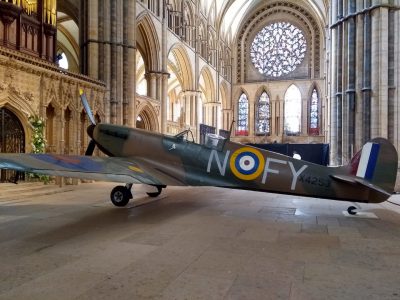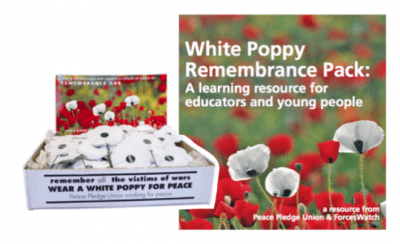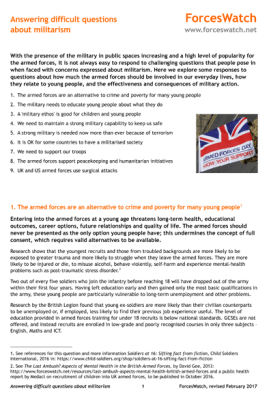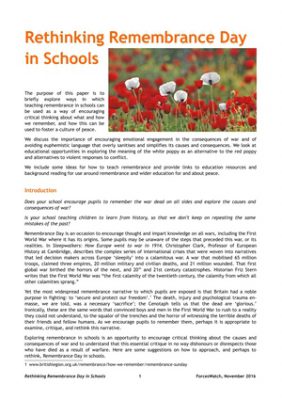WWI commemorations
RAF100: A Short Counterhistory of Britain’s Air Force

2018 has been the centenary year of the Royal Air Force. While many think of the RAF in the sepia tones of the Battle of Britain, and the RAF leans heavily on a mystique that sets it apart from the army and navy, there is far more to be said about the service. We explore the role it has played in the last 100 years in bringing the asymmetry of air power to conflicts with often devastating effect.
White Poppies for Schools
updated August 2018

We have teamed up with the Peace Pledge Union to produce a White Poppy Schools Pack, which aims to explore Remembrance in a way that encourages critical thinking, and gives space for marginalised perspectives on war and peace. The learning resource can be read online here, or purchased from the Peace Pledge Union as a bigger pack including white poppies and white poppy leaflets.
Answering difficult questions about militarism
February 2017

With the presence of the military in public spaces increasing and a high level of popularity for the armed forces, it is not always easy to respond to challenging questions that people pose in when faced with concerns expressed about militarism. In this briefing we explore some responses to questions about how much the armed forces should be involved in our everyday lives, how they relate to young people, and the effectiveness and consequences of military action.
Quakers in Britain

The Quakers work on peace education, as well as other peace issues - carrying it out in schools and promoting it as a necessary part of the curriculum. See here for current Quaker projects, peace education resources and their partner organisations.
Rethinking Remembrance in Schools
November 2016

This paper, published by ForcesWatch, explores ways in which teaching remembrance in schools can be used as a way of encouraging critical thinking about what and how we remember, and how this can be used to foster a culture of peace.
Bringing it up to date: 100 years on from the First World War
This article, summarising ForcesWatch work, was first published on the White Feather Diaries website.
Three Days on the Western Front: A student’s experience of a school trip to the First World War battlefields
An account of a school trip in 2015 to the First World War battlefields by Joe Brydon, who was in Year 13 at the time, which raises various important questions about some of the ways that school students are being encouraged to remember war.
Children have no place in the British army
22/12/2015The Guardian
The Guardian
Britain is the only country in Europe to recruit 16-year-olds into its armed forces. The cynical targeting of underprivileged youngsters must end
The Army offer ‘Soldiers to Schools’ as First World War Centenary ‘support’
10/06/2015Army
Army
In addition to placing a soldier on each school coach visiting the First World War battlefields (as part of the government’s flagship Centenary initiative to have at least two students from every school in the country visit them), the Army have launched their own First World War teaching resources for schools, and are offering to send soldiers to schools to ‘support teaching activities’.
How ought war to be remembered in schools
November 2014

David Aldridge examines the reasons usually advanced for involving children and young people in commemorating the war dead, and finds many of them wanting. He critically examines the high profile in schools of charities, like the Royal British Legion, with vested interests in certain kinds of commemoration. And he argues forcefully for a justification of remembrance in schools that requires a major rethink of established rituals and practices.
